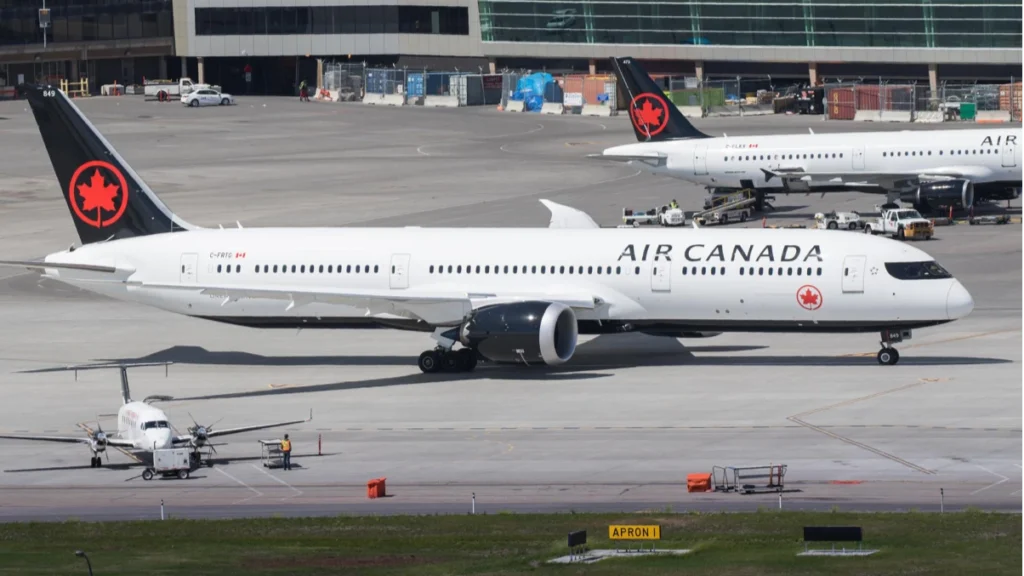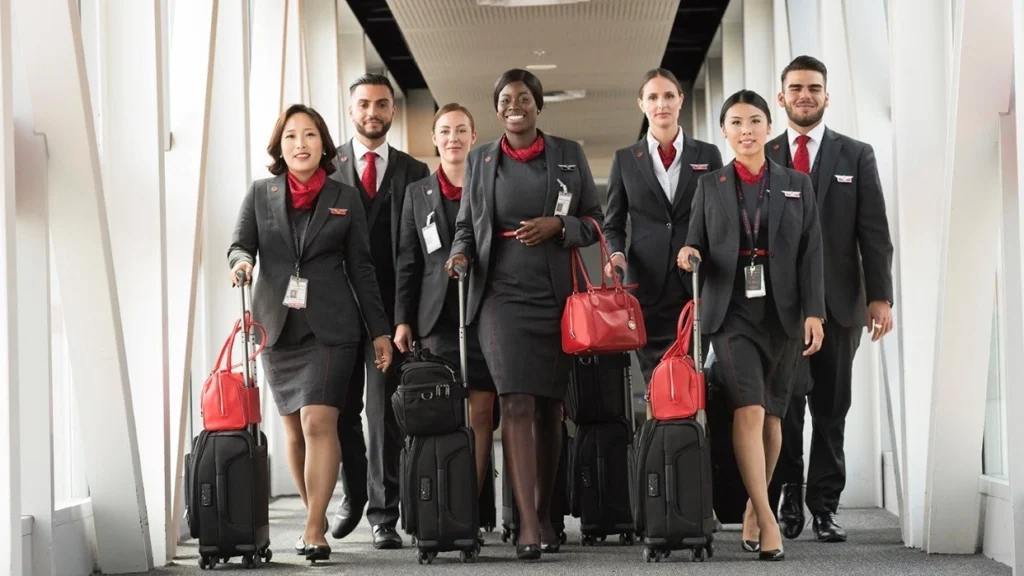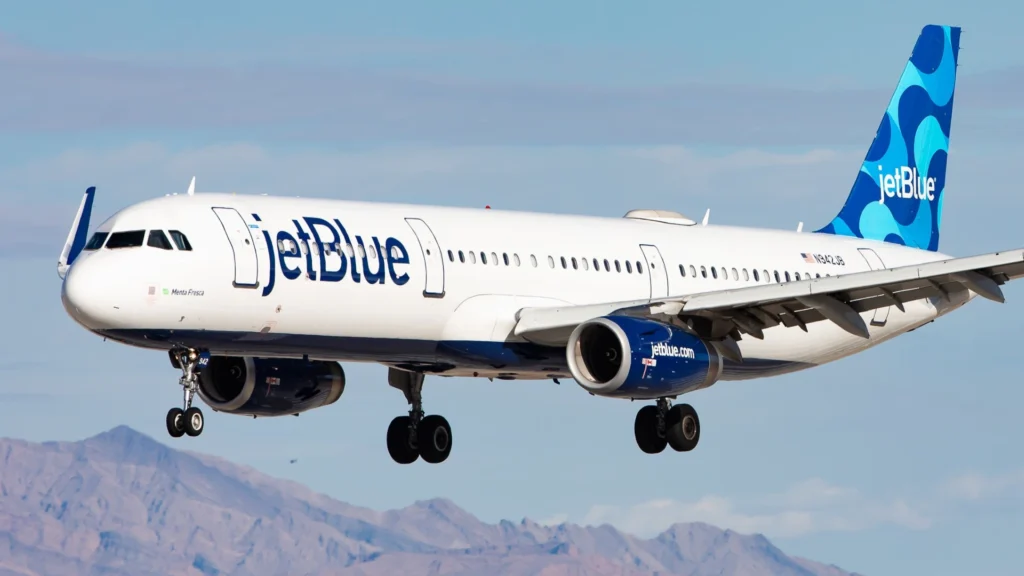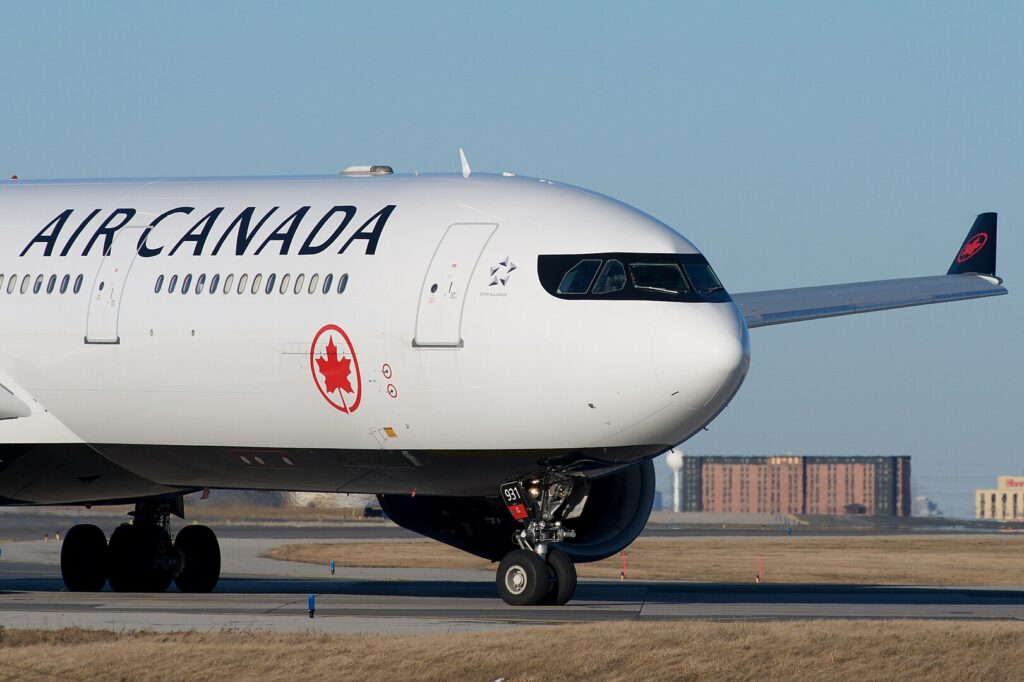MONTREAL- Air Canada (AC) denied a passenger’s compensation claim after a flight attendant accidently spilled a drink on their laptop during inflight service.
The incident joins Air Canada to a growing list of North American carriers that refuse to accept responsibility for crew-caused damage to consumer gadgets.

Air Canada Attendant
The flight attendant logged the incident and instructed the passenger to submit a claim on Air Canada’s website. Despite this acknowledgment, the airline took over a year to respond, despite numerous follow-ups from the passenger, according to PYOK.
Air Canada’s final response rejected responsibility, citing tariff regulations: “We sympathize with your position, but we are unable to evaluate your claim. Tariff regulations govern all air travel, and they prohibit liability for cabin baggage or other goods under the passenger’s care and control.”

This approach violates Air Canada’s own tariff laws, which state that the airline must assume obligation for damage caused by its negligence.
Nonetheless, the carrier has a blanket policy that excludes coverage for damage to electronic equipment, jewelry, artwork, business papers, and other valuables, regardless of how the damage occurred.

Similar Incident
A recent JetBlue Airways (B6) incident parallels Air Canada’s attitude, in which a flight attendant spilled iced coffee on a passenger and his laptop. JetBlue provided quick compensation of a $25 coupon and a complementary cheese plate, but denied additional claims when the traveler discovered serious laptop damage at home.
Legal experts believe Canada’s small claims courts may provide relief for harmed passengers, while favorable decisions remain unlikely. This legal avenue provides an alternative to airlines’ blanket refusal practices.
The occurrences reveal a crucial gap in passenger safety, forcing passengers to rely on personal insurance coverage provided by credit cards, travel insurance, or device-specific policies such as Apple Care. However, insurance deductibles still leave passengers responsible for damages committed by airline personnel.
These examples demonstrate a rising practice among North American airlines to avoid culpability for crew-caused damage, regardless of the circumstances or documentation.

Airline Fined For Mistreating Passenger
The Small Claims Court of Yukon has ordered Air Canada to pay $10,000 Canadian dollars to a couple whose vacation plans were ruined due to the airline’s systemic failings. Justice Katherine L. McLeod made a decisive decision against the airline for breaking the Air Passenger Protection Regulations.
The Yukon couple had saved for three years to arrange their first child-free vacation, including organizing childcare for their three children and coordinating work leave for a nine-day visit at a Cuban resort in February 2023. Their plans were interrupted when they arrived in Toronto for their connecting flight.
Air Canada’s overbooking resulted in a voluntary denial of boarding, with the company offering alternate transportation via American Airlines. This guarantee proved incorrect, resulting in a three-day odyssey at numerous Canadian airports, including Montreal, Toronto, and Edmonton.
The airline’s subsequent effort to book Air Transat tickets failed because no reservation records existed. The trapped pair decided to buy Cancun tickets on their own, which required additional work leave and resulted in additional financial losses.
Justice McLeod’s decision highlighted Air Canada’s utter inability to meet APPR obligations, particularly for written confirmation of alternative travel plans for voluntarily bumped passengers. The court dismissed Air Canada’s defense, noting weather delays and an initial $2,400 per passenger compensation.
While Air Canada refunded $1,800 for lodging and meal charges after legal procedures began, the court concluded that this did not cover entire losses, including new flight fees and lost pay. Plaintiff Tosh Southwick’s victory could set a precedent for future passenger rights claims, as it comes amid 80,000 pending complaints with the Canadian Transportation Agency as of early November.













Leave a Reply